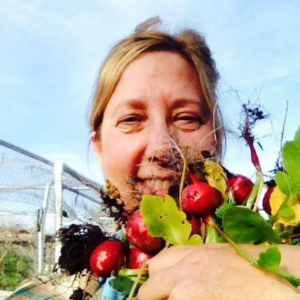Gilroy and South Bay Extended Weather Forecast
Please help those in need by donating food and/or money
Food insecurity has serious impacts on an individual’s well-being, which may result in poor school attendance and performance, lowered workplace productivity, and physical and mental health problems. Individuals struggling with food insecurity have to make [...]
Celebrate the beginning of the holiday season
Haul out the holly and dust off your Santa hats! The Morgan Hill Kiwanis Holiday Lights Parade is coming to town beginning at 5:30 Saturday, Dec. 7. For more than 40 years, families from Morgan [...]
Join the Fight Against Hunger: Supporting St. Joseph’s Family Center This Holiday Season
As we prepare to gather with loved ones this holiday season, it’s important to remember that many of our neighbors are struggling to meet even their most basic needs. St. Joseph’s Family Center, a cornerstone [...]
Your Garden … with Sharon McCray: Be careful because everything in nature touches everything else
We need to be aware that “no man is an island.”
![]()
By Sharon McCray

Sharon McCray
 I hope you had the opportunity to visit one of our many local county fairs this summer. They are, in my opinion, only getting better.
I hope you had the opportunity to visit one of our many local county fairs this summer. They are, in my opinion, only getting better.
I’ve been mulling these thoughts for some time and feel this might be the perfect time to share them with you. John Muir is quoted as saying that everything in nature touches everything else. A truer statement has never been made.
Simple acts in our surroundings can have a profound effect on everything else around us. The tree you plant will shade your neighbors, provide homes for wildlife and at the end of its long life, provide warmth through a winter fire or wood for a summer home.
All around us, simple changes in our everyday lives are making a difference in our environment and ecosystem. We need to be aware that “no man is an island.” We are all in this together.
The innocent act of eliminating just one element will have a profound effect on everything else. As an example, when farm cats are removed from the once balanced ecosystem, the removal or even feeding of feral cats could cause a catastrophic consequence with the local rodent population. Now that the natural predators are gone, the destructive ground squirrels, rats and squirrels can devastate crops and destroy building foundations. Now we must look to alternative solutions to once non-existent issues. Poisons and traps are a simple solution.
 Rodents poisoned are then consumed by birds of prey, foxes and coyotes, usually with fatal consequences. The vicious cycle becomes more unmanageable every day. The highly effective falcons that helped monitor the rodent population are now gone from our city. Their demise is a mystery and I can only assume they too, have “gone to a better place.”
Rodents poisoned are then consumed by birds of prey, foxes and coyotes, usually with fatal consequences. The vicious cycle becomes more unmanageable every day. The highly effective falcons that helped monitor the rodent population are now gone from our city. Their demise is a mystery and I can only assume they too, have “gone to a better place.”
When farm birds such as chickens, ducks and peafowl are removed for whatever reason, the garden pest and insect populations explode, creating another situation. Earwigs, snails and slugs become unmanageable and turn to feasting on your hard earned vegetable and fruit crops. Now, once again, the solution is pesticides or traps.
Weeds are a constant garden problem, another one solved by the chemical industry. These chemicals have no effect whatsoever on the seeds of the plants and are not affected by the herbicide. They will produce even more seed next year. The bees and butterflies along with other flying insects are starving or being killed by the residue of poison on the seeds and flowers.
 I ask, “What has happened to common sense?” Where is the balance?
I ask, “What has happened to common sense?” Where is the balance?
PFAS, a class of forever chemicals, are in nearly everything we consume or wear. The CDC reports PFAS can be found in 97 percent of the U.S. population. National Institute of Health research shows a large variety of plants directly absorb the PFAS. To quote a recent article in Mother Earth News, “regions of the country where wastewater is reclaimed and used for irrigation are particularly susceptible,” meaning, they are in our foods and contaminating our soils. “The effects of these chemicals can be devastating and include learning and behavioral problems, lead to cancer, immune system disorders, fertility problems and obesity.”
More research is definitely needed. Clean unbiased research that includes farmers, people in the fields that have firsthand knowledge of how this all works. We must remember, a farmer’s survival depends on their ability to take care of and protect their land.
It is important to teach children about nature and respecting wildlife. More importantly, if done correctly, it can help instill positive reactions to everything else around us. It is said that to truly love something, you must first know it. I couldn’t agree more.
Sharon McCray is a California native living in Santa Clara County since 1959. She became certified as a University of California cooperative extension master gardener in 1992 and a UCCE master naturalist in 2015. She hosts a radio show on KKUP public radio and is now retired.



